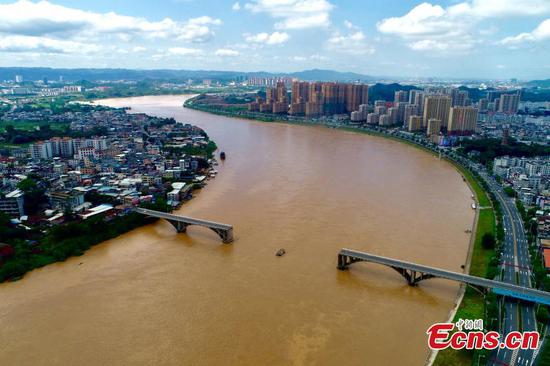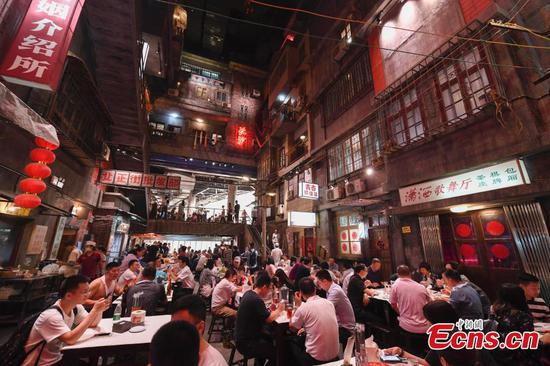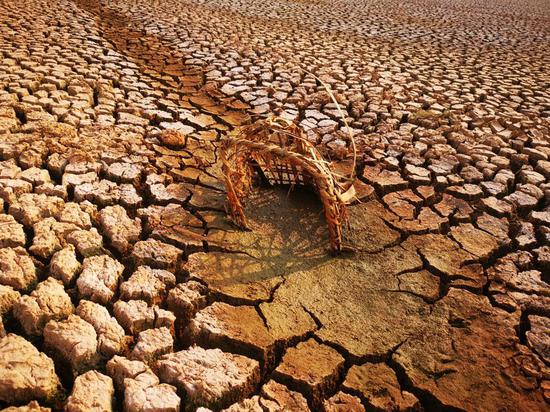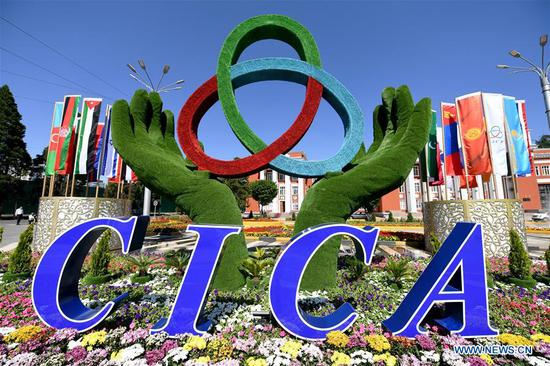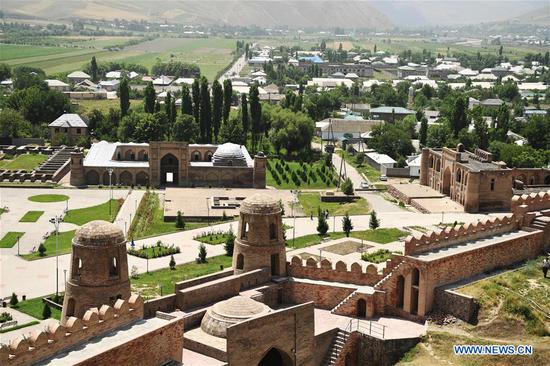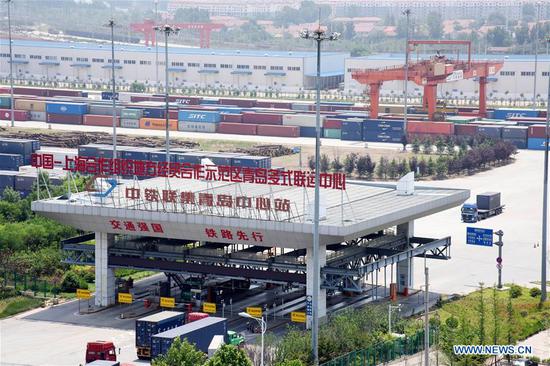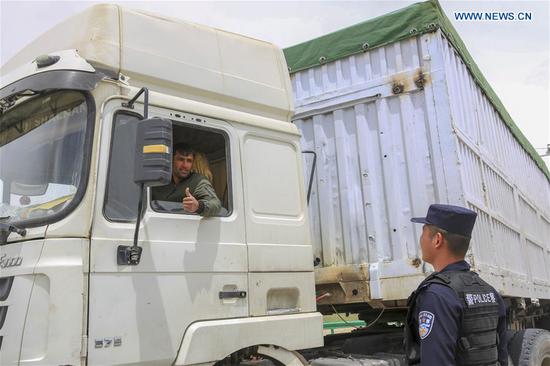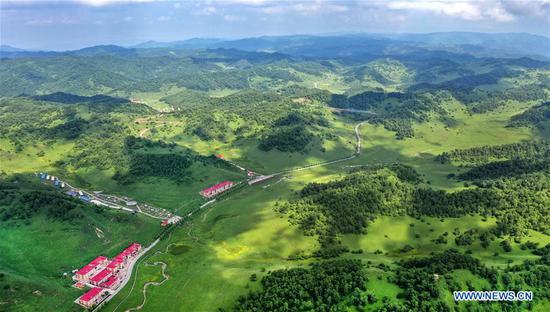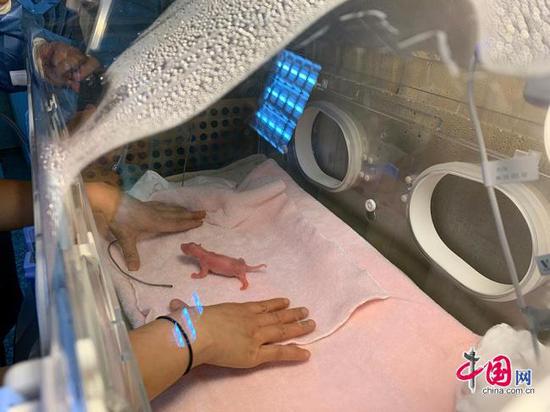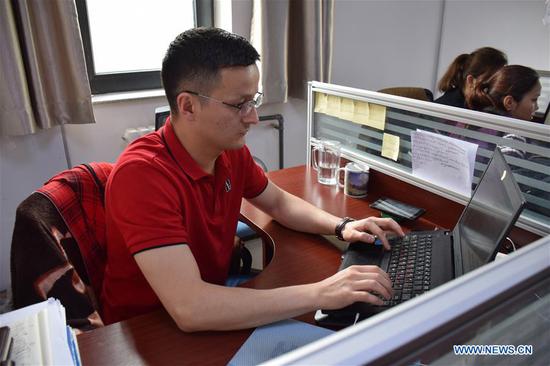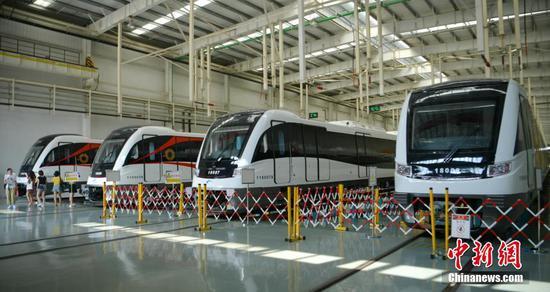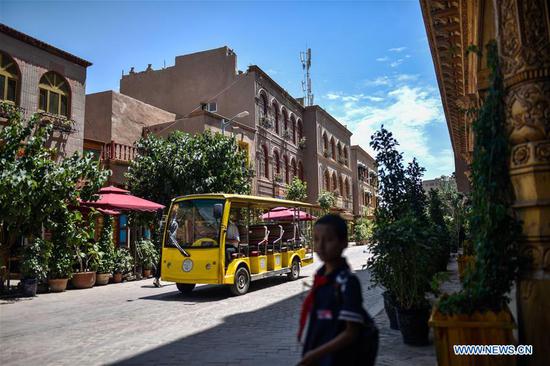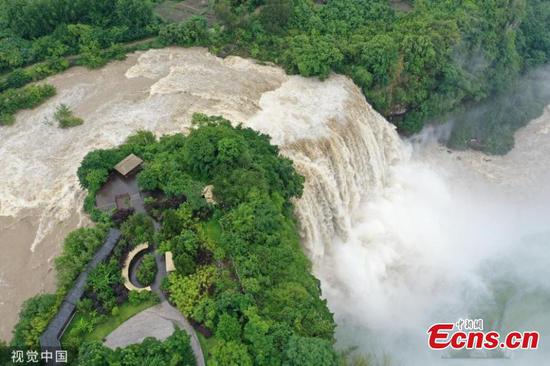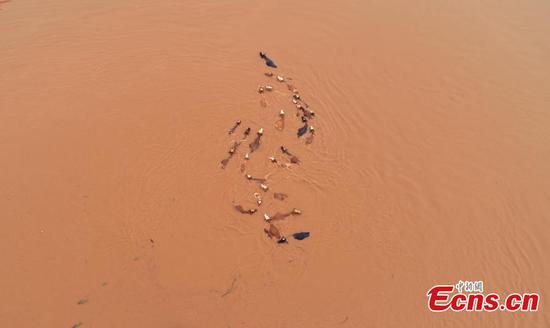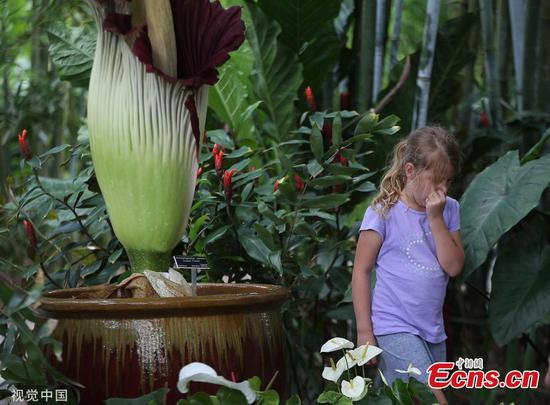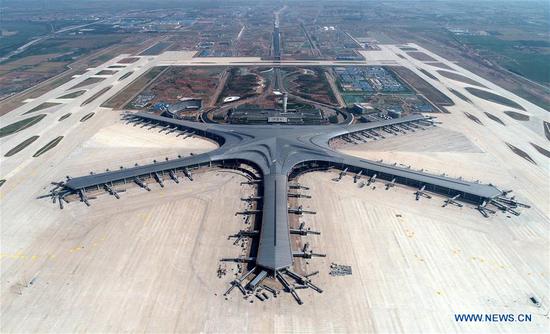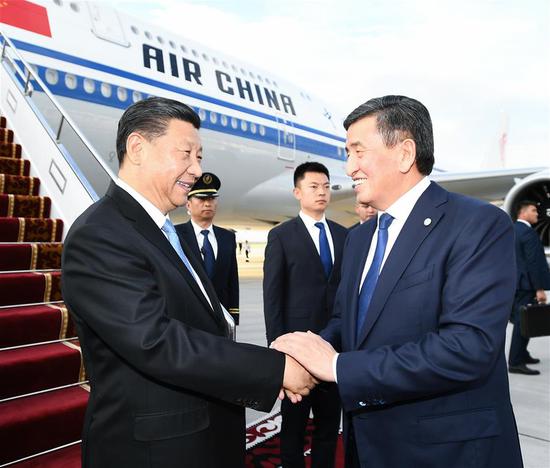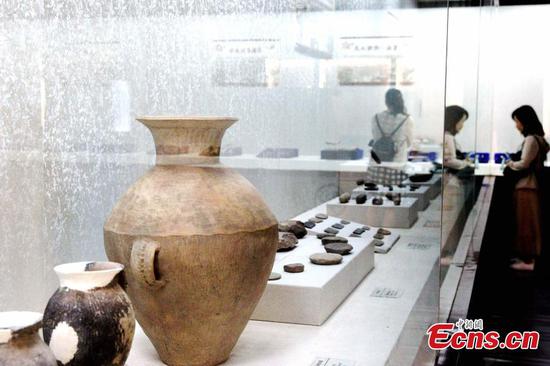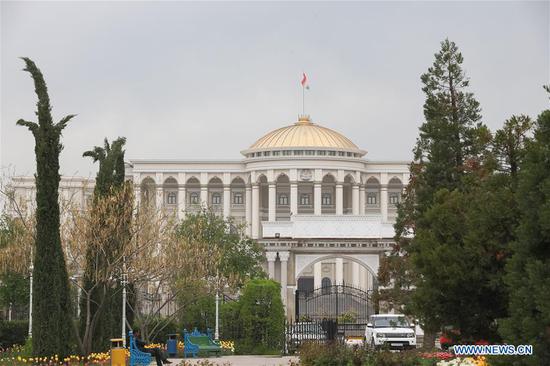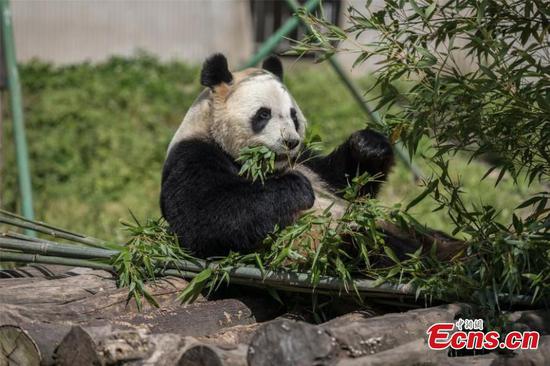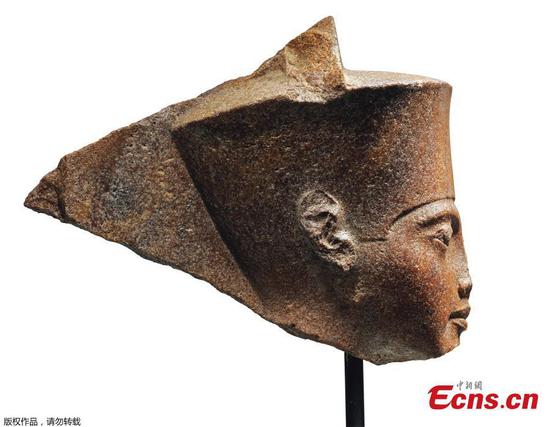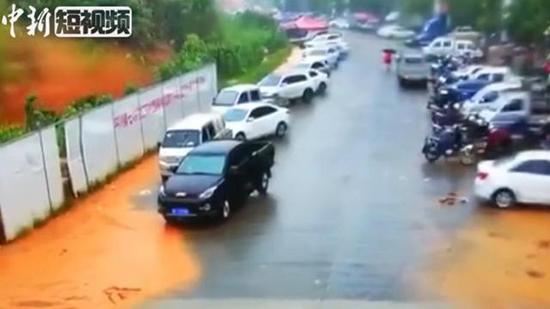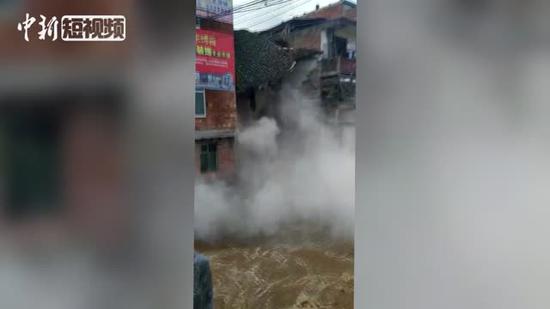
Participants exchange ideas at the 2019 Forum on the Development of Tibet on Friday in Lhasa. (Photo by Wang Jing/China Daily)
President Xi Jinping said he hopes that the Tibet autonomous region will seize opportunities for development in a congratulatory letter sent to the 2019 Forum on the Development of Tibet held on Friday in Lhasa.
The region, located on the Qinghai-Tibet Plateau, is an important border area with ethnic minority populations, an important ecological security barrier, an important area for protecting the distinctive culture of China and an important world tourist destination, Xi said in the letter.
This year marks the 70th anniversary of the founding of the People's Republic of China and the 60th anniversary of the campaign of democratic reform in Tibet, he said.
Speaking highly of the achievements in Tibet in the past decades, Xi expressed hope that the autonomous region also will build a beautiful and happy Tibet, make its fine traditional culture flourish, protect the plateau's environment, implement a more active policy of opening-up, and conduct extensive international exchanges and cooperation.
The forum, jointly organized by the State Council Information Office and the regional government of Tibet, was held using the theme, "Belt and Road Initiative and the Opening-Up and Development of Tibet". It attracted the participation of 69 officials, scholars and journalists from 37 countries and regions outside of China, organizers said.
Topics such as Tibet in Silk Road civilizations, the role of Tibet in the Belt and Road Initiative and the opening-up of Tibet and the inheritance and development of Tibetan culture were also discussed at the forum.
Paul Tembe, a senior researcher at the Thabo Mbeki African Leadership Institute in South Africa, said he saw a different model of development in Tibet. The development is focused not only on the growth of the economy but also features a "human happiness index", in which the preservation of tradition, religion and the improvement of people's lives are covered.
Michael Harrold, a senior editor at the English Channel of China Global Television Network, said he had thought of Tibet as remote, isolated and inaccessible.
"So it comes as a surprise, to be honest, particularly during this forum, to realize that Tibet is playing a role in the Belt and Road Initiative," he said.
Harrold, from the United Kingdom, said people in his country might have thought of Tibet as only mountains that people can't get through, where there is no trade or interconnection with the outside world.
"But coming to this forum and having met people from countries that Tibet has close ties to, such as India, Nepal and Pakistan, I realize that there is a lot of interaction and a long history here."
He added that the trip and the forum made him realize that Tibet is not cut off, but is developing further. He was particularly impressed that the infrastructure in Tibet is being developed at a very rapid rate, laying the foundation for the region's future.
Before the forum, the delegates visited villages and elementary schools in Nyingchi in southeastern Tibet and held talks with people from various walks of life.
In the regional capital, Lhasa, they visited a welfare facility, a hospital specialized in Tibetan medicine and a high school.
They visited cultural and architectural jewels such as Potala Palace, Jokhang Temple and Barkhor Street to learn firsthand about the protection of cultural relics and traditional culture in Tibet.









